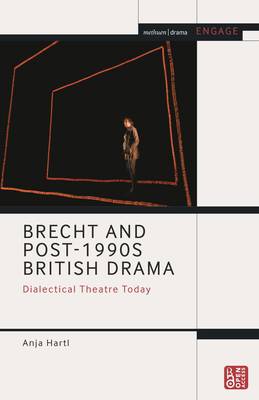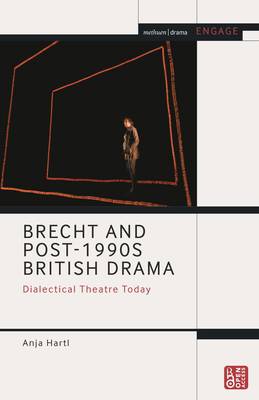
Bedankt voor het vertrouwen het afgelopen jaar! Om jou te bedanken bieden we GRATIS verzending (in België) aan op alles gedurende de hele maand januari.
- Afhalen na 1 uur in een winkel met voorraad
- In januari gratis thuislevering in België
- Ruim aanbod met 7 miljoen producten
Bedankt voor het vertrouwen het afgelopen jaar! Om jou te bedanken bieden we GRATIS verzending (in België) aan op alles gedurende de hele maand januari.
- Afhalen na 1 uur in een winkel met voorraad
- In januari gratis thuislevering in België
- Ruim aanbod met 7 miljoen producten
Zoeken
€ 203,95
+ 407 punten
Uitvoering
Omschrijving
Can theatre change the world? If so, how can it productively connect with social reality and foster spectatorial critique and engagement?
This book examines the forms and functions of political drama in what has been described as a post-Marxist, post-ideological, even post-political moment. It argues that Bertolt Brecht's concept of dialectical theatre represents a privileged theoretical and dramaturgical method on the contemporary British stage as well as a valuable lens for understanding 21st-century theatre in Britain.
Establishing a creative philosophical dialogue between Brecht, Walter Benjamin, Theodor W. Adorno and Jacques Rancière, the study analyses seminal works by five influential contemporary playwrights, ranging from Mark Ravenhill's 'in-yer-face' plays to Caryl Churchill's 21st century theatrical experiments. Engaging critically with Brecht's theatrical legacy, these plays create a politically progressive form of drama which emphasises notions of negativity, ambivalence and conflict as a prerequisite for spectatorial engagement and emancipation.
This book adopts an interdisciplinary and intercultural theoretical approach, reuniting English and German perspectives and innovatively weaving together a variety of theoretical strands to offer fresh insights on Brecht's legacy, on British theatre history and on the selected plays.
This book examines the forms and functions of political drama in what has been described as a post-Marxist, post-ideological, even post-political moment. It argues that Bertolt Brecht's concept of dialectical theatre represents a privileged theoretical and dramaturgical method on the contemporary British stage as well as a valuable lens for understanding 21st-century theatre in Britain.
Establishing a creative philosophical dialogue between Brecht, Walter Benjamin, Theodor W. Adorno and Jacques Rancière, the study analyses seminal works by five influential contemporary playwrights, ranging from Mark Ravenhill's 'in-yer-face' plays to Caryl Churchill's 21st century theatrical experiments. Engaging critically with Brecht's theatrical legacy, these plays create a politically progressive form of drama which emphasises notions of negativity, ambivalence and conflict as a prerequisite for spectatorial engagement and emancipation.
This book adopts an interdisciplinary and intercultural theoretical approach, reuniting English and German perspectives and innovatively weaving together a variety of theoretical strands to offer fresh insights on Brecht's legacy, on British theatre history and on the selected plays.
Specificaties
Betrokkenen
- Auteur(s):
- Uitgeverij:
Inhoud
- Aantal bladzijden:
- 200
- Taal:
- Engels
- Reeks:
Eigenschappen
- Productcode (EAN):
- 9781350172784
- Verschijningsdatum:
- 28/01/2021
- Uitvoering:
- Hardcover
- Formaat:
- Genaaid
- Afmetingen:
- 140 mm x 216 mm
- Gewicht:
- 381 g

Alleen bij Standaard Boekhandel
+ 407 punten op je klantenkaart van Standaard Boekhandel
Beoordelingen
We publiceren alleen reviews die voldoen aan de voorwaarden voor reviews. Bekijk onze voorwaarden voor reviews.









